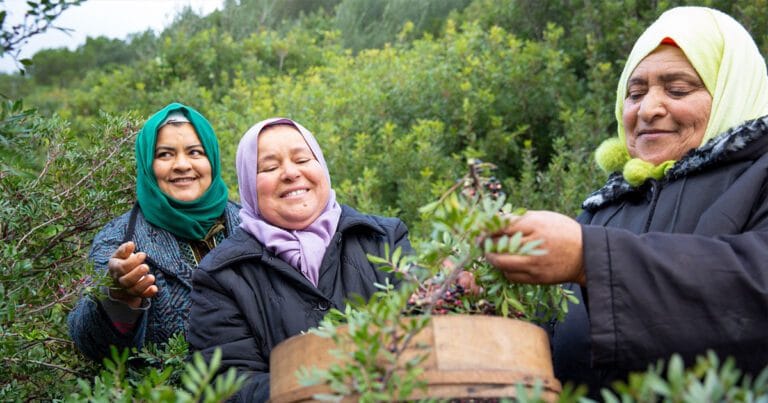In the village of Tbainia, northwest of Tunisia, climate change seriously threatens the activities of women who gather medicinal and aromatic herbs. These workers, mostly organized within the cooperative “Al Baraka,” are seeing their harvests decrease as droughts intensify and water sources dry up.
**A precarious income**
Mabrouka Athimni, director of the cooperative, sadly observes the impact of these climate upheavals: “We earn half, sometimes only a third, of our previous income.” The lack of rain reduces the quantities of available herbs, compromising the production of essential oils from plants like rosemary, mastic, or eucalyptus.
**An exacerbated climate crisis**
Tunisia is experiencing its sixth consecutive year of drought. The dams, essential for the northwest of the country, are only 20% full. In this region, where the poverty rate reaches 26%, well above the national average, these droughts amplify inequalities.
**Challenging working conditions**
The gatherers, who represent 70% of the Tunisian agricultural workforce, suffer from extreme temperatures that can exceed 50 °C in summer. Mongia Soudani, a mother of three, worries about the future: “We used to harvest three or four bags of herbs. Today, it’s an achievement to fill just one.”
**Insufficient solutions**
In the face of these challenges, the gatherers have received training from international organizations, such as the FAO, to preserve forest resources. However, Mabrouka Athimni admits that this is not enough: the harvests remain insufficient, and the cooperative is losing clients.
**An uncertain future**
Despite Tunisia’s adherence to climate agreements like the Paris Agreement, their implementation remains limited, particularly for vulnerable populations like these women. Some are seeking to diversify their activities to no longer rely solely on natural resources, but solutions are lacking.
In the fields, Bochra Ben Salah summarizes the general sentiment: “We have no choice but to rely on God’s mercy.” With an almost empty basket in hand, she illustrates the daily struggle of women facing the impacts of climate change on their lives and livelihoods.


